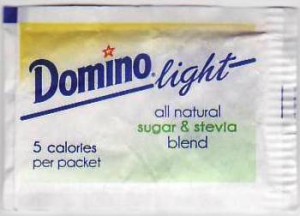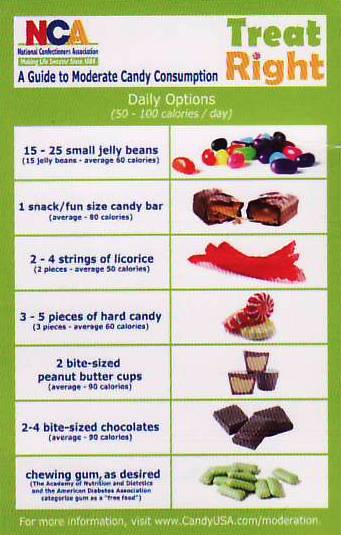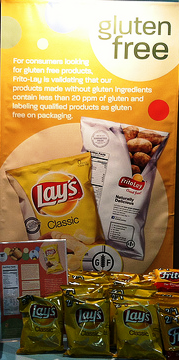The latest in dietetic junk food
The Academy of Nutrition and Dietetics (formerly the American Dietetic Association) has just concluded its annual meeting and exhibition.
I was unable to attend but colleagues have been sending photos and giving me products or other objects collected at the exhibition. This exhibition is always worth a look. It typically features displays by food companies (Big Food and small) giving away samples of what I love to call “dietetic junk foods” in order to encourage dietitians to recommend them to clients.
Thanks to my NYU colleague, Lisa Sasson, for alerting me to these entertaining examples.
First: sugar-supplemented Stevia:
Next: The National Confectioners Association has a handy guide to moderate candy consumption:
Then: Frito-Lay (owned by PepsiCo) ‘s new Gluten-Free chips.
Potato chips did not ever contain gluten, but never mind. They remind me of products offered during the low-carb craze a few years ago, like the ones I photographed when working on What to Eat in 2005.
Eat healthfully and enjoy the weekend!





